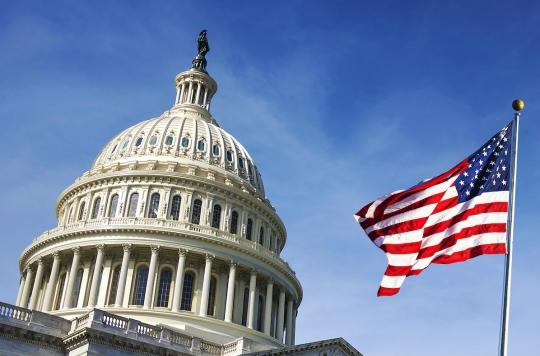Whatever the outcome of the American elections, the outcome of which is expected on Wednesday, November 4 in France, millions of Americans will find themselves on the losing side. A situation that would threaten their mental health: in 2016, residents of pro-Hillary Clinton states experienced on average an additional half day of stress or depression.

- In 2016, there were 54.6 million additional days of stress and depression in December 2016 alone for the 109.2 million adults living in pro-Hillary states.
- The greater the final gap between the two candidates, the greater the risk of stress and depression.
- Researchers fear that this year’s election will worsen the mental health of voters because of the health context and its consequences.
This Wednesday, November 4, we will know the name of the future president of the United States. And beware of the losers. In 2016, Donald Trump’s victory doubled hospitalizations for cardiovascular disease within two days of the election. This election has also resulted in increased stress and depression among supporters of his opponent, Hillary Clinton, revealed US researchers from UC San Francisco and Duke University. They published the results of their research on October 31 in the Journal of General Internal Medicine.
54 million days of additional stress and depression
Donald Trump or Joe Biden? Regardless of the outcome, the losing clan is set for dark days ahead. The American researchers revealed that the greater the gap between the two candidates, the greater the number of days of stress and depression for the losers. “Clinicians should consider that the elections could lead to at least a transient increase in poor mental health and adapt patient care accordingly”, concluded Renee Y. Hsia, lead author of the study.
Researchers studied data from nearly 500,000 American adults, looking at mental health indicators during the 2016 presidential elections. They found that residents of states that voted overwhelmingly for Hillary Clinton experienced an average of half a additional day of poor mental health in the month following the election compared to the previous one. That translated to 54.6 million extra days of stress and depression in December 2016 alone for the 109.2 million adults living in pro-Hillary states.
A deterioration exacerbated by the final spread
The researchers also relied on two surveys, conducted before and after the November 2016 election, which found that about 50% of Americans said the election is a significant source of stress. In particular, they relied on the Behavioral Risk Factor Surveillance System, an annual joint state and federal government household survey of 499,201 adults, to study the effects of the election.
Respondents in the 20 pro-Hillary states said that in the 30 days before and after the polls, they experienced “stress, depression and problems” on average 3.35 days in October 2016 compared to 3.85 days in December 2016. The researchers also noted a 2 percentage point increase in the number of respondents in pro-Clinton states who reported 14 or more days in a months of poor mental health, a marker of major depressive disorder. No such increase was found in pro-Trump states. For his constituents, poor mental health occurred on average 3.94 days and 3.78 days the month before and the month after the election. “A statistically unchanged difference”, described the authors.
The researchers noted that the surprising nature of Hillary Clinton’s defeat according to her voters as well as the discrepancy of the result with Donald Trump accentuated the deleterious effects on voters’ mental health. “It’s possible that the deterioration in mental health in Clinton’s states was exacerbated by the largely unexpected nature of the loss – at least according to pre-election polls.”, observed Brandon Yan, author of the study. Moreover, the researchers observed that a score of 10 percentage points higher for Hillary Clinton in the states which voted for her majority predicted 0.41 more days of poor mental health after her defeat.
The fear that the situation will worsen this year
The adverse effects on the mental health of voters continued in the months following the election. In April 2017, the number of residents in pro-Hillary states who reported suffering from depression rose 3.2 points from October 2016, a month before the presidential election.
The authors fear that the next election will contribute to aggravating the risks of stress and depression. “The situation is aggravated by the pandemicbelieves Renee Y. Hsia. Usual approaches to depression screening and mental health care may not reach patients who do not see their doctor. The pandemic, along with the economic downturn, is leading to more isolation and loneliness. Americans are worried about the spread of the disease, and they have heightened fears about job security, keeping a roof over their heads and ensuring their children continue in school.”


.
















